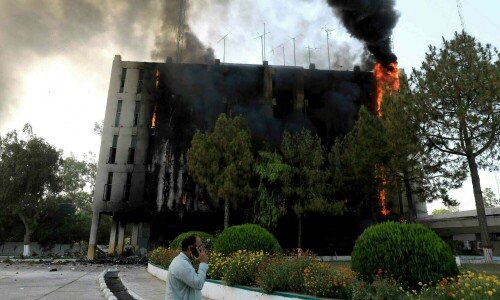WASHINGTON: As a physician specialising in addiction, Dr Jasmeet Bains, the first Sikh American elected to the California assembly, was used to risky situations.
Even so, Bains said she was shocked when four men came to her office in August last year, shortly after California adopted her resolution declaring the killing of thousands of Sikhs in India in 1984 a genocide. The men, who appeared to be of Indian origin, warned they would “do whatever it takes to go after you,” Bains said.
Since last summer, Bains said, she has received more than 100 threatening text messages. She spotted someone taking photos of her Bakersfield home from a parked truck, and the lock on her mailbox was broken repeatedly. Bains reported the incident at her office to the local police, and the surveillance of her home to the state assembly Sergeant-at-Arms.
The FBI contacted her about the threats in her office in October, Bains said. Bains also added she began screening phone calls and avoiding travelling alone. She occasionally requests a security detail while attending official events.
“My life has changed,” she said. “I don’t go anywhere alone anymore. I make sure my staff is with me at all times, which is hard for someone as independent as me.
‘US and Canada investigate’
Meanwhile, four Indian nationals are facing charges of murder and conspiracy in Canada for the June 2023 fatal shooting of Sikh separatist Hardeep Singh Nijjar outside his gurdwara, a Sikh place of worship, in Surrey, British Columbia.
Separately, the US Justice Department has charged Indian national Nikhil Gupta with trying to arrange the murder of separatist leader Gurpatwant Singh Pannun at the behest of an Indian intelligence official. Gupta pleaded not guilty and is awaiting trial in New York. India has denied involvement in Nijjar’s killing and the attempted assassination of Pannun. It has pledged to investigate the plot against Pannun, but not Nijjar.
At least six activists said they suspect that India’s government or its supporters could be behind the harassment, though they acknowledged it can be hard to prove — especially when the threats come from anonymous parties. Kanwarpal Singh, political secretary of the Punjab-based Dal Khalsa group, which lobbies for a separate state, has accused Prime Minister Narendra Modi’s government of trying to defame and isolate Sikh separatists. He did not specify whether he was referring to separatists in India or abroad.
Two FBI officials did not comment directly on India’s possible role in transnational repression. One said they “look across a really broad range of aggressive countries.”
The FBI officials said it can be difficult to determine whether threats are emanating from a foreign government or criminal elements using similar tactics to try to extort victims. Like Nijjar, Pannun is a proponent of a fringe demand to secede from India and carve out an independent state called Khalistan.
‘A kind of worst-case scenario’
Nate Schenkkan, senior director of research at the Washington, DC non-profit Freedom House, which monitors global civil liberties, said the campaign represents “a kind of worst-case scenario for transnational repression when a major state acts completely outside the law using all the tools at its disposal to silence dissent in another country”.
Published in Dawn, August 13th, 2024













































